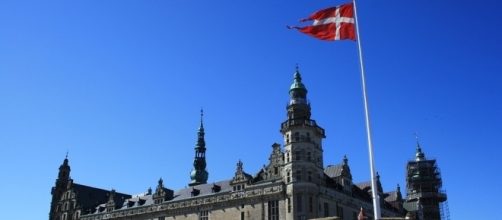Shakespeare can teach us much about what love is and what it is not. He can teach us that each of us is a spectrum, capable of the meanest thoughts and deeds and in the next breath acting like saints. No work of Shakespeare rings these changes more than “Hamlet." It is among the four or five plays that rank as masterworks on any listing.
The reason why Hamlet is relevant to now is that its underlying theme is the future of evil itself. The dominant view of Hamlet is that he could not make up his mind. True. But there is something else to be said.
If Hamlet cannot make up his mind, neither can we.
https://t.co/Lhuzom2NeN: Hamlet (The Annotated Shakespeare) William Shakespeare, Burton Raffel, Harold Bloom: https://t.co/eoKOWzAQMu
— Stephen C. Rose (@stephencrose) October 4, 2017
Shakespeare is universal
All of Shakespeare’s plays are glorious in their capacity to universalize the specific. Hamlet is about a short period in the mists of time in the country of Denmark. The initial evil is the killing of Hamlet’s father. The death is inflicted not only by the current King, but by Hamlet’s mother as well. She is now remarried to the current king, Hamlet's uncle, and occupies the role of Queen.
Prince Hamlet has been done in by his uncle and his mother.
When the play opens, the dead king’s ghost appears. The ghost convinces Hamlet to avenge his death. Hamlet agrees but then hems and haws. It takes several acts before he goes through with his revenge.
Our story is Hamlet's as well
Hamlet’s delay is the human story. Hamlet does not want to take revenge because he knows there is no point in it. He wonders what point there is in anything. If evil cannot be punished without spawning more evil, what reason is there in life?
At the end of the play, Hamlet finally sees beyond his own tragic fate. What Hamlet sees is the end of the human story. And the end is marked in blood all around him. We must assume that Shakespeare himself shared the vision of the dying Hamlet.
In essence, Hamlet most likely saw what Wittgenstein saw also. Wittgenstein called it the unspeakable.
Hamlet saw past his dilemma.
We live in a world long after Hamlet first trod the boards of London theaters. The riddle remains before our eyes. It is a world soaked in the bile of vengeance or what some call karma. The way past it is not total destruction. The way to live on is to come to terms with our fallible nature and make modifications as needed. Killing solves nothing. Doing harm is pointless.
Responding to Ta-Nehisi Coates https://t.co/U5Xq7Yj112
— Stephen C. Rose (@stephencrose) October 4, 2017
Hamlet was in all probability the herald of the triadic stage of history when we do not accept binary fates but wend our triadic way to a destiny that evolves toward the greater good. It is not as dramatic as the apocalypse, but it is a way in which we Shakespeare might have observed it.


